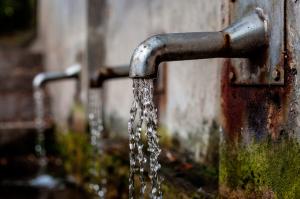Report says broadband is as important as electricity and water
 A new report issued by the International Telecommunication Union (ITU) has recognised broadband connectivity to be as “essential as water and electricity” for an individual’s home environment.
A new report issued by the International Telecommunication Union (ITU) has recognised broadband connectivity to be as “essential as water and electricity” for an individual’s home environment.
The global report found that internet connectivity is vital to a person’s quality of life, with a reliable connection described as an essential utility.
In addition to this, the Broadband Commission for Sustainable Development further noted in its annual report that an increasing number of countries around the world are valuing broadband access as a fundamental human need. Governments have responded favourably, now actively taking an interest in the matter and establishing targets for connectivity speeds and strategies.
Secretary-General of the ITU, Houlin Zhao, said: “Broadband infrastructure is vital country infrastructure, as essential as water and electricity networks. The data analysis and policy recommendations contained in the 2018 State of the Broadband report come at a crucial time when internet access is more important than ever before.”
It is estimated that half of the global population presently use internet services, with the percentage being higher in dense, highly-populated urban centres. For rural areas, however, a significant level of investment is required to expand the vital networks to those living outside of urban hubs.
In 2017, ITU’s research found that it would cost £385 billion to extend broadband connectivity to a further 1.5 billion people worldwide.
The British government itself has spent the past several years attempting to boost reliability and speed to its population, with the aim of bringing superfast broadband to 95 per cent of premises across the country. The government is also busy rolling out fill-fibre optic services, so as to move away from copper networks.
The goal is to completely turn off all old copper networks by 2033, but a number of businesses which rely on fast internet have called on the government to increase the speed of the transition to 2025 or even earlier.







